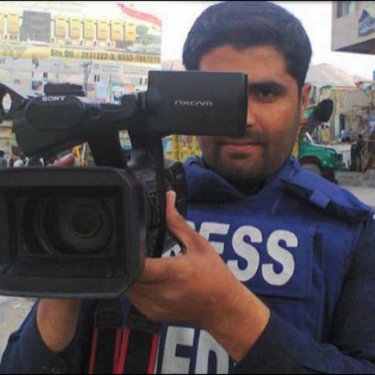After two journalists killed in bombing, RSF urges Pakistan’s media to anticipate risks

Condemning today’s suicide bombing at a hospital in Quetta (in the southwestern province of Balochistan), which killed around 100 people including two local journalists, Reporters Without Borders (RSF) calls on the authorities to carry out a thorough investigation and urges media outlets to anticipate the risks involved in news coverage in the entire region.
Aaj TV reporter and cameraman Shehzad Ahmed died on the spot while Dawn News cameraman Mehmood Khan died as doctors tried to save his life. A third journalist working for Dunya News, identified only as Faridullah, was being treated for injuries sustained in the blast.
The explosion occurred shortly after the body of a prominent lawyer, Bilal Anwar Kasi, who had been the victim of a shooting attack in another part of the city, was brought to the hospital. Many lawyers had rushed to the hospital in response to the news of the shooting, while media outlets sent reporters to cover the scene there.
“We offer our heartfelt condolences to the families and colleagues of the victims of this barbaric crime and we call on Balochistan’s government to do everything possible to catch those who were behind it,” said Benjamin Ismaïl, the head of RSF’s Asia-Pacific desk.
“At the same time, the media must take additional measures to forestall the risks for their reporters. The modus operandi of today’s attack was similar to the notorious ‘twin blast’ method often used by terrorists to maximize the number of victims. Media outlets must not yield to the temptation of instant, on-the-spot coverage if it puts their reporters in danger.”
The “twin blast” method is often used by terrorists in Pakistan and Afghanistan. After an initial explosion, police, emergency services and reporters rush to the scene, where many of them fall victim to a second explosion.
Samaa News cameraman Imran Shaikh, Samaa News reporter Saifur Rehman and Mohammad Iqbal, a photographer with News Network International (NNI), a privately-owned news agency, were killed in such a double bombing in Quetta in January 2013.
In March 2014, RSF called for an increase in security for journalists covering the Afghan presidential election, in which they were exposed to the threat of the double bombing strategy. And RSF continues to distribute its Safety Guide for Journalists, produced jointly with UNESCO.
As a result of a fall in the number of journalists killed in 2015, Pakistan improved its position in RSF’s World Press Freedom Index and is currently ranked 147th out of 180 countries.


